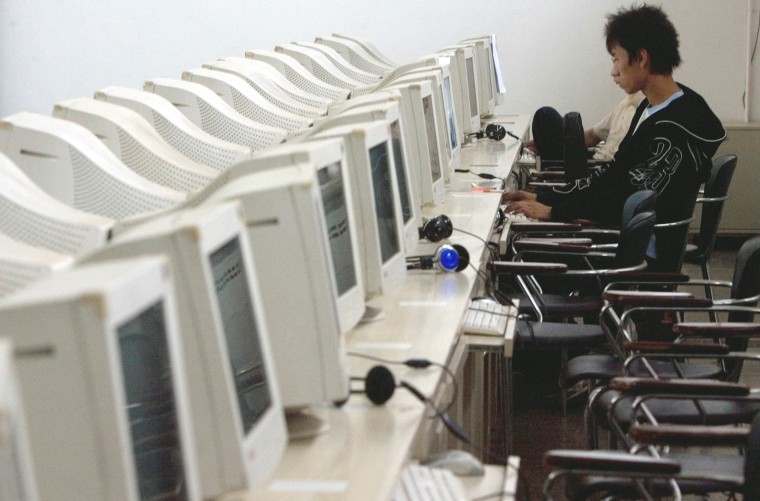A California free-speech group wants to force China to end Internet censorship and remove barriers to American e-commerce companies hoping to do business in China.
In a presentation Monday to the Office of the U.S. Trade Representative in Washington, the San Rafael, Calif.-based California First Amendment Coalition argued that China's blatant and sophisticated censorship of the Internet violates China's obligations under the World Trade Organization.
The nonprofit group wants the U.S. Trade Representative to file a petition with the WTO alleging that China has breached agreements that WTO members must adhere to. China became a member of the WTO in 2001.
The WTO has never addressed whether e-commerce and Internet access are covered by the organization's bylaws — but activists say the CFAC initiative could become a test case.
According to CFAC attorneys, WTO agreements give members "rights of market access" for bilateral trade — but many electronic retailers cannot have fully operable Web sites for Chinese consumers because of government censorship.
"China's censorship of the Internet, while fundamentally an issue of free speech and individual liberty, is also a significant barrier to U.S.-China commerce and, therefore, very much a trade issue," said Peter Scheer, executive director of San Rafael, Calif.-based CFAC.
China's government uses software to root out offensive keywords and block blacklisted Web sites. Government censors, known as Net nannies, surf the Web looking for pornography, subversive political content or other illegal material.
China — which has 162 million Web users — is among a handful of countries that have extensive filters for political sites. Iran, Myanmar, Syria, Tunisia and Vietnam are also believed to block political content.
